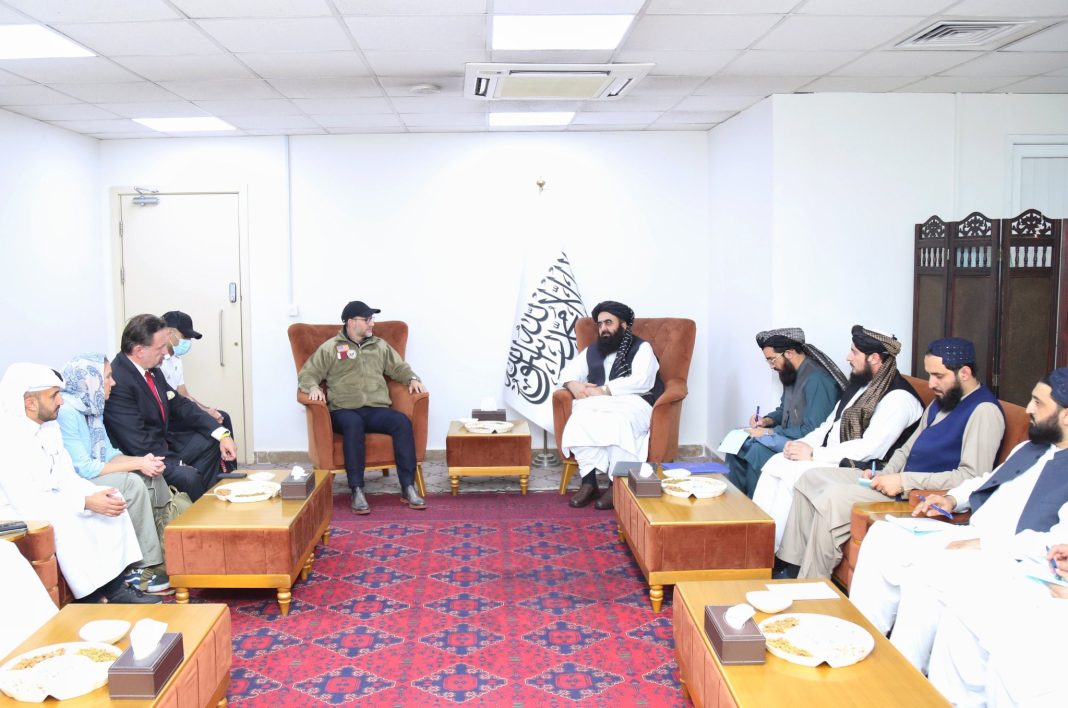A US citizen who had been held by the Taliban in Afghanistan for nine months has been released after extensive negotiations brokered by Qatari mediators, officials confirmed on Sunday.
After 9 months in detention, American citizen Amir Amiry is finally free.
His release from Afghanistan was secured through tireless diplomatic efforts by the U.S. and Qatar.
A powerful reminder of the work behind the scenes. pic.twitter.com/FBHN1VSzIn
— The Age Of Genz (@TheAgeOfGenZ) September 28, 2025
The man, identified as Amir Amiry, is the fifth American freed from detention in Afghanistan this year. He is currently en route to the United States after briefly stopping in Doha.
US Secretary of State Marco Rubio expressed gratitude to Qatar, describing its mediation as “tireless and indispensable” in securing Amiry’s freedom. Rubio said Amiry had been “wrongfully detained” and reiterated that several other American citizens remain imprisoned in Afghanistan under what he called “unjust” circumstances. The Trump administration, he added, is continuing efforts to secure their release.
“Leaving an American was the hardest thing that I have ever done in my life, and I promised him that we would come back for him,” U.S. Special Envoy Adam Boehler told Fox News on Sunday.
American citizen Amir Amiry has been freed from Afghanistan detention after months of… pic.twitter.com/REO2SAnYmU— Donnie Cope (@dcopechatter) September 28, 2025
The precise reasons for Amiry’s detention remain unclear, though US officials have consistently accused the Taliban of detaining foreigners arbitrarily as a means of leverage in negotiations. Qatar’s foreign ministry said it began mediating Amiry’s case in March, facilitating a meeting between Amiry and the US Special Envoy for Hostage Affairs, Adam Boehler. A breakthrough in talks was reportedly achieved this past weekend, paving the way for his release.
Amiry’s case adds to a growing list of high-profile detentions involving US and Western citizens in Afghanistan since the Taliban regained power in August 2021. In January, two Americans—including Ryan Corbett, who was abducted in 2022 while on a work trip—were freed as part of a controversial prisoner exchange. In return, Washington released Khan Mohammad, a Taliban operative serving a life sentence in California for drug trafficking and terrorism-related charges.
Two more Americans, including George Glezmann, a tourist detained in 2022, were freed in March after further negotiations. Earlier this month, a British couple, Peter and Barbie Reynolds, who had lived in Afghanistan for nearly 20 years, were also released through Qatari mediation.
Qatar has increasingly positioned itself as a critical intermediary between the West and the Taliban, given its longstanding role in hosting Taliban leaders and facilitating dialogue. The Gulf state previously mediated the 2020 US-Taliban peace agreement in Doha, which paved the way for the eventual US withdrawal from Afghanistan.
Human rights groups have criticized the Taliban’s practice of detaining foreign nationals, describing it as a tactic to gain political leverage. Analysts say the pattern reflects the group’s efforts to extract concessions from the international community at a time when Afghanistan remains diplomatically isolated and under severe economic strain.
A Step Toward Renewed Engagement?
The release of Amir Amiry may also serve as a small but meaningful step toward improving strained relations between Washington and Kabul under Taliban rule. Since the chaotic US withdrawal in 2021, ties have been defined largely by mutual distrust, sanctions, and the absence of formal diplomatic recognition.
Ambassador Khalilzad @realZalmayMK – Washington breaking ice with Afghan Taliban is certainly positive! Shows a pragmatic approach, which POTUS Trump wants to be known for. But an engagement must de-freeze Afghan funds seized by the US; this can in turn help empower the “Doha… https://t.co/K1wSBnIGN2
— Moeed Pirzada (@MoeedNj) September 28, 2025
However, successful cooperation on humanitarian and consular issues—such as the safe return of detained citizens—could open limited channels of dialogue. For the Taliban, it provides an opportunity to project a more pragmatic image and demonstrate responsiveness to international concerns, while for the US, it creates a foundation for cautious engagement without granting full legitimacy.
Analysts suggest that if such gestures continue, they could gradually build trust and establish a framework for addressing broader issues like counterterrorism, humanitarian aid, and regional stability.
With additional input by GVS Intl desk














